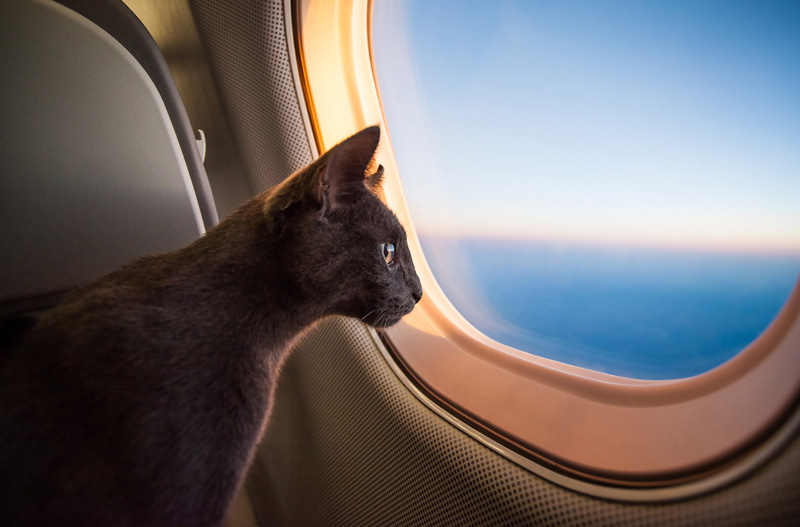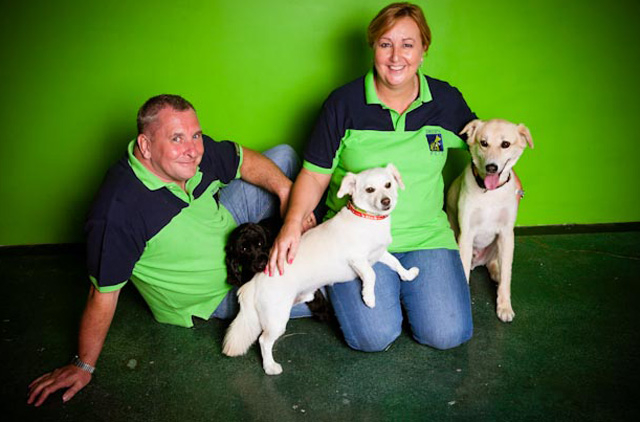On the many UAE Facebook animal community pages, the most commonly posted query is how to successfully, and cheaply, take a pet out of the country when relocating.
Despite efforts by the authorities and several airlines to make everything much simpler, there is still confusion about how the process works. Many fear the whole experience will prove expensive, traumatic, and even dangerous for their cherished furry family member.
Lindsey Davies, the owner of Dubai relocation and boarding service Snoopy Pets, advises people to plan well ahead and research the nitty-gritty.
“In most cases people do have options on whether they can take their pets with them as excess baggage or cargo,” she says. “Excess baggage is the most cost-effective way if the destination country allows it as you simply pay by weight of the animal.
The cargo question
“However, in countries such as the UK, Ireland and Australia this is not allowed. Therefore pets have to arrive as cargo. As with most things nowadays, moving pets is not a cheap process as there are many factors to consider such as the health certificates, airline charges and veterinary fees — if they are employing a pet relocation agent there will be their charges as well," she adds.
“It is possible to move your pets yourself especially if you have time to research what is needed and arrange everything. But generally, people come to us to ensure everything goes smoothly and because they don’t have the time to do the paperwork and so on themselves.”
Basic requirements include an export permit, a valid rabies vaccination between one year and 30 days, proof that the animal is microchipped, and a travel box that meets International Air Transport Association guidelines.
Former Dubai expat Caroline Tapken relocated to Thailand in September, taking a rescue dog and a Jack Russell. She did most of the arrangements herself with assistance from her vet.
“It was quite a process, finding information on importing dogs to Thailand, obtaining the correct entry permits and compiling the correct information,” she says.
“We worked with our Dubai vet to obtain the necessary health reports and UAE exit permits, and talked to Emirates airline directly to book flights and get the correct information with regard to crate sizes and procedures — plus, we used a Thai contact to get the necessary import papers for Thailand.
“From the UAE to Thailand the dogs flew as excess baggage. We had to make sure there was space on that particular flight before we booked tickets, which Emirates helped with, and then we checked them in at the normal check-in counter with our luggage, paying by weight. Vet fees were about Dh3,500 including health check, obtaining export licence and government health certificate, vaccination updates, deworming and pet taxi to the airport. Then we had the flight cost of course. Emirates was excellent though and clearly accustomed to handling pets.”
Former Dubai expat Rasika Thapa relocated her two small dogs at the end of March to New Delhi, India. She used a vet in Abu Dhabi to get the documentation for both animals.
“This included a fit-to-fly document from the vet and Ministry of Environment approval documents,” she explains. “However, this was only the Abu Dhabi side of things. In India, we dealt with a relocation service.”
She advises anyone looking to move pets to scrutinise every expense. “I found out that some relocation services here who do the whole process, even handling the dog in India, charge a staggering amount. It’s best to hire someone from India to deal with the paperwork and import approvals there.
“Make sure your pup is well trained at least three weeks prior to flying. This will help them be less nervous as, from personal experience, handlers may get a little rough with the crate and it’s best to have your puppy trained to be calm in any situation.”
Environmental hazards
British dog trainer Gael Small, owner of Happy Dog Javea in Spain’s Costa Blanca, says it’s crucial to research hazards your pet could face if they fly to a new country — for example being infected by processionary caterpillars.
“You should also know what is required regarding the law in your new home, ensuring chip details are updated on the local system, for example,” she adds.
“Also, knowing which dogs are on the PPP dangerous dogs list, and whether your dog should be on a leash in certain public areas.”
As for the actual day of travel, Small urges people to keep their emotions in check. “Animals react to their owner’s anxiety and can become nervous and stressed themselves, so be conscious of your own state of mind.”
















